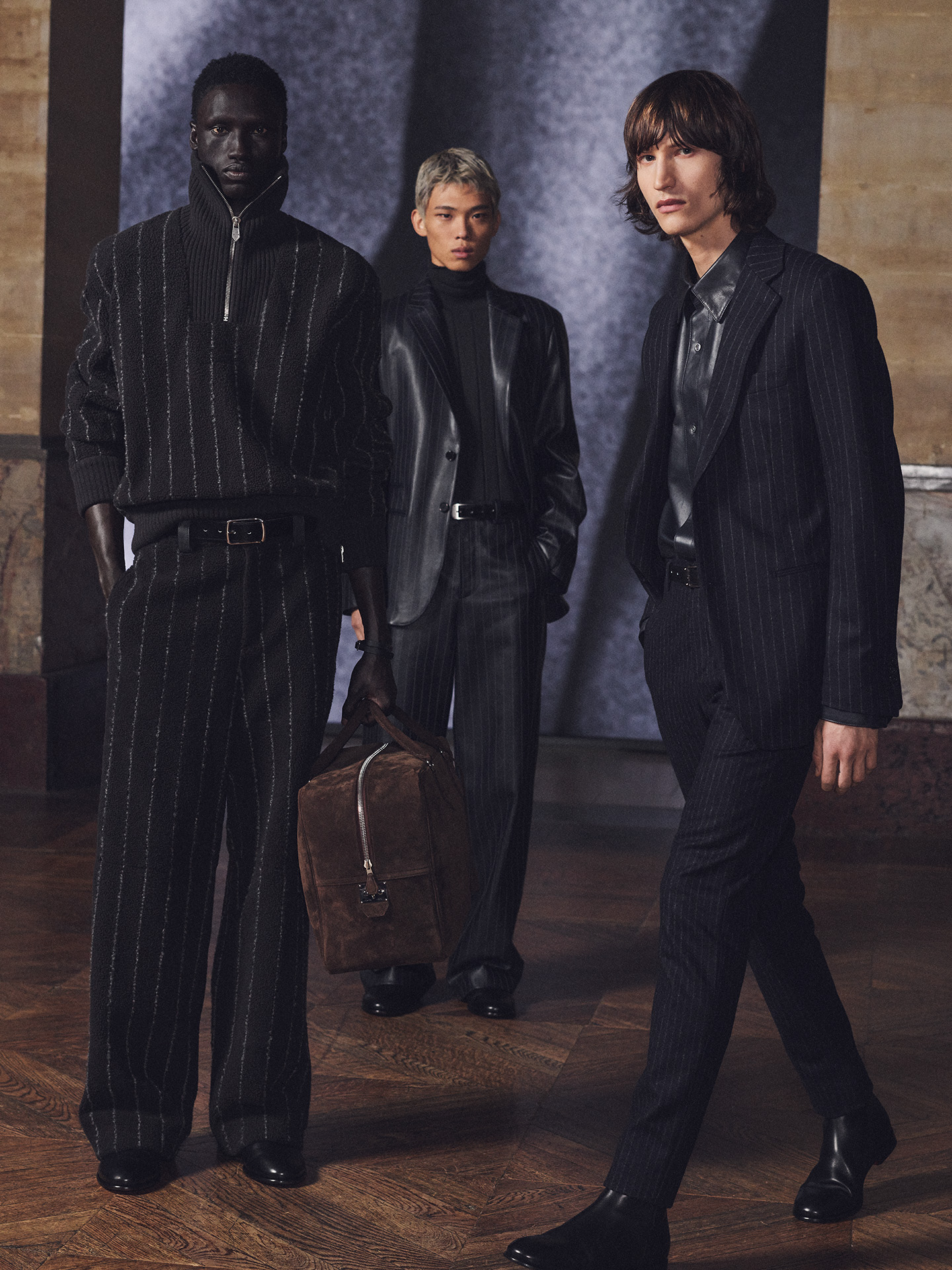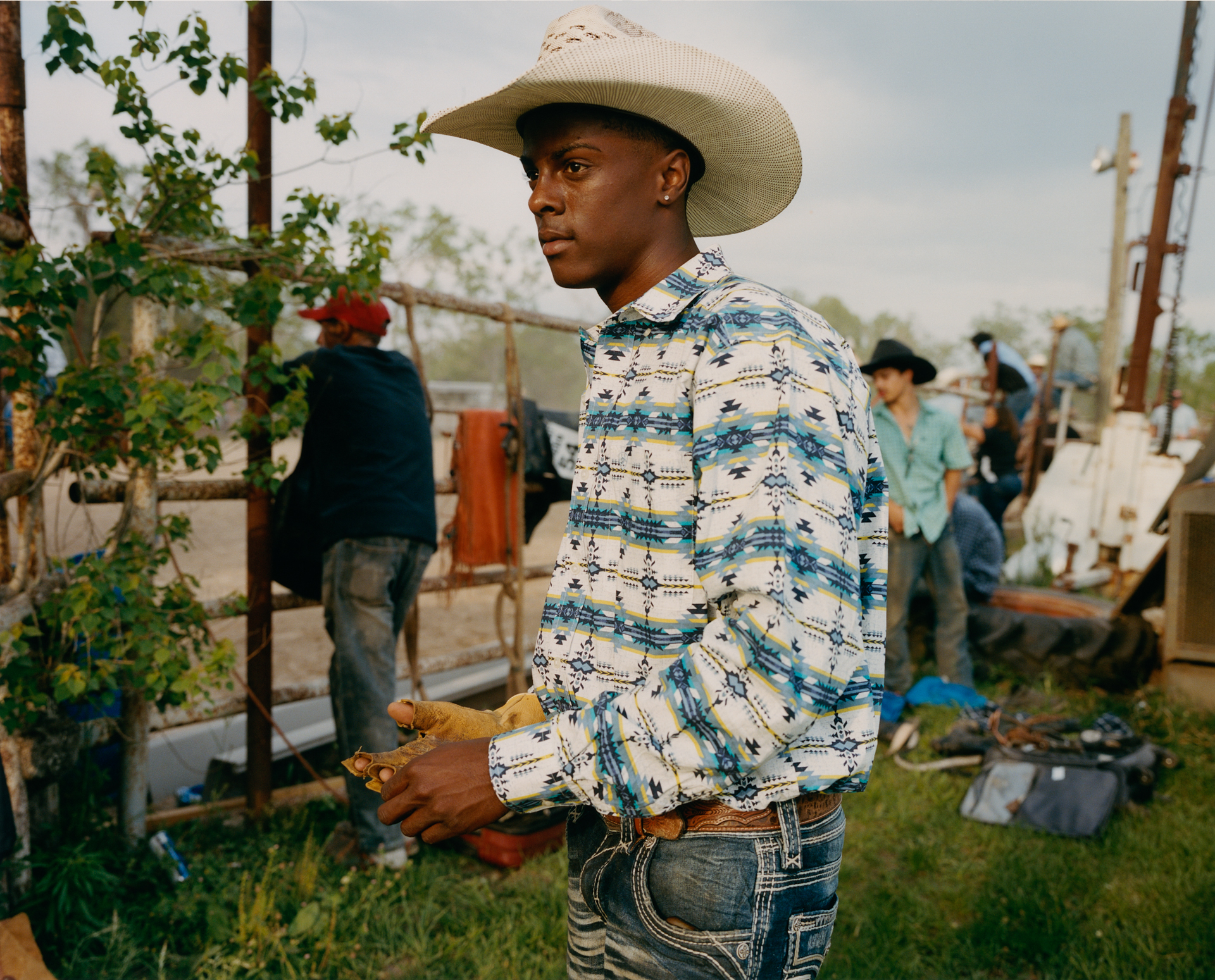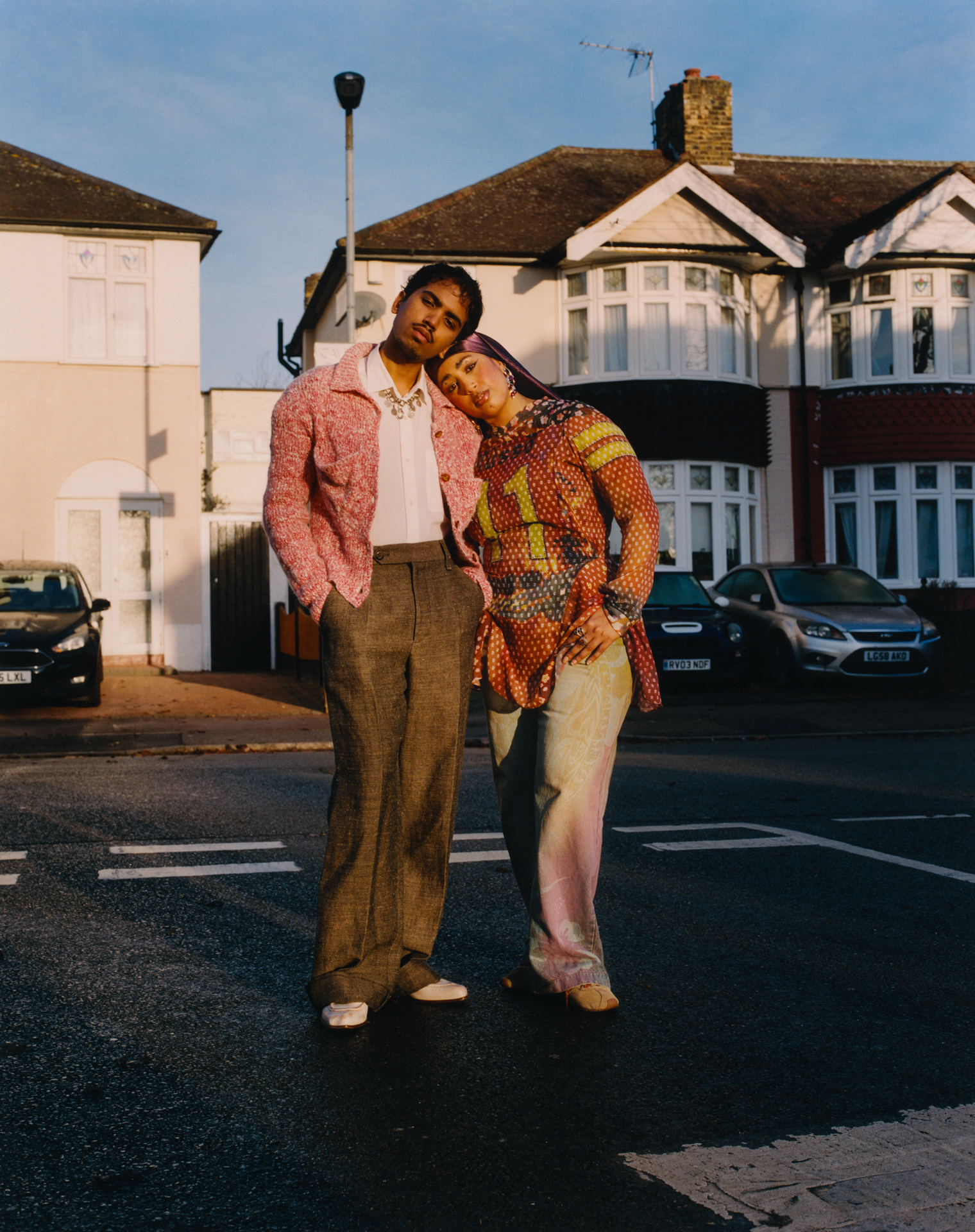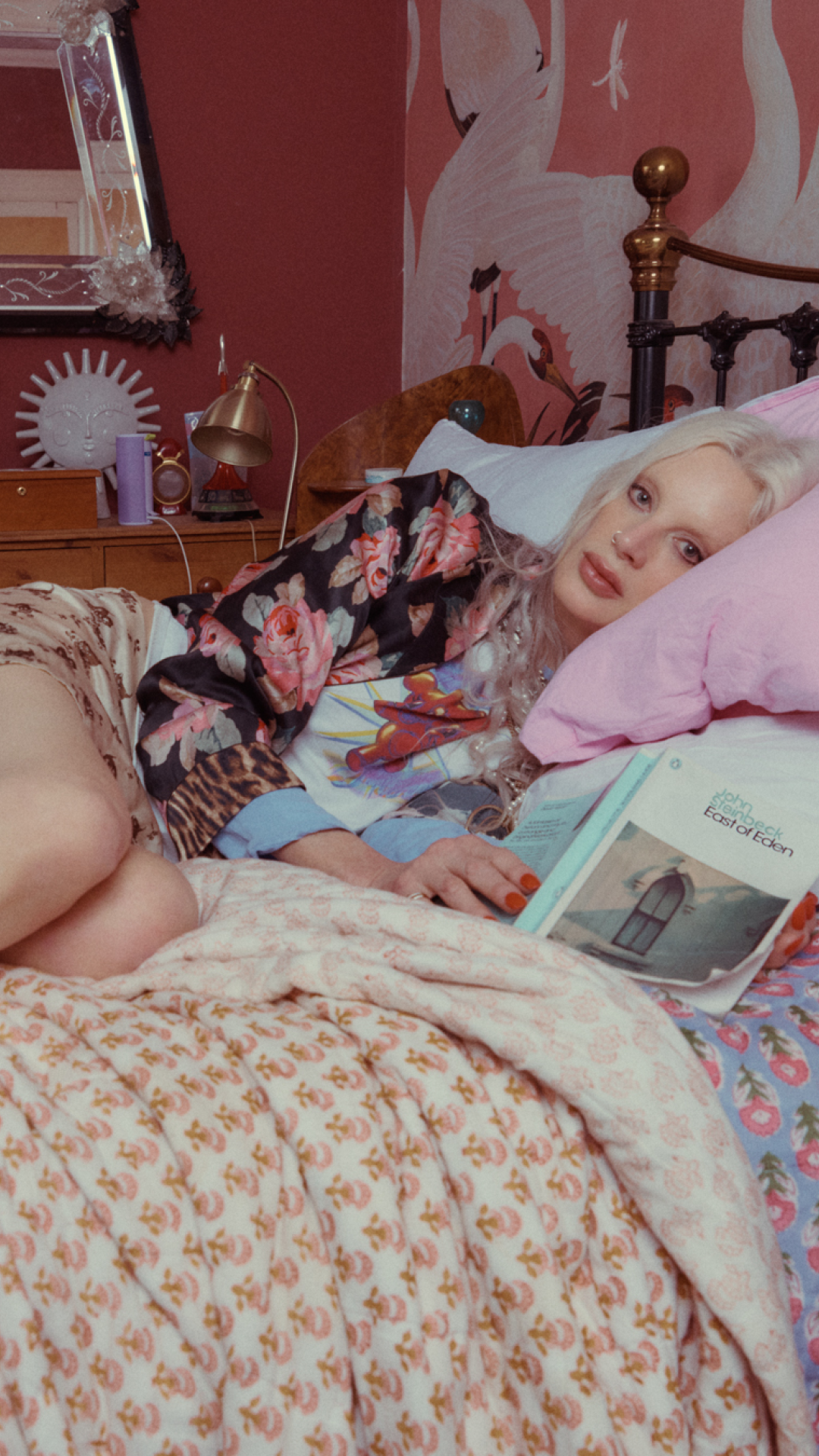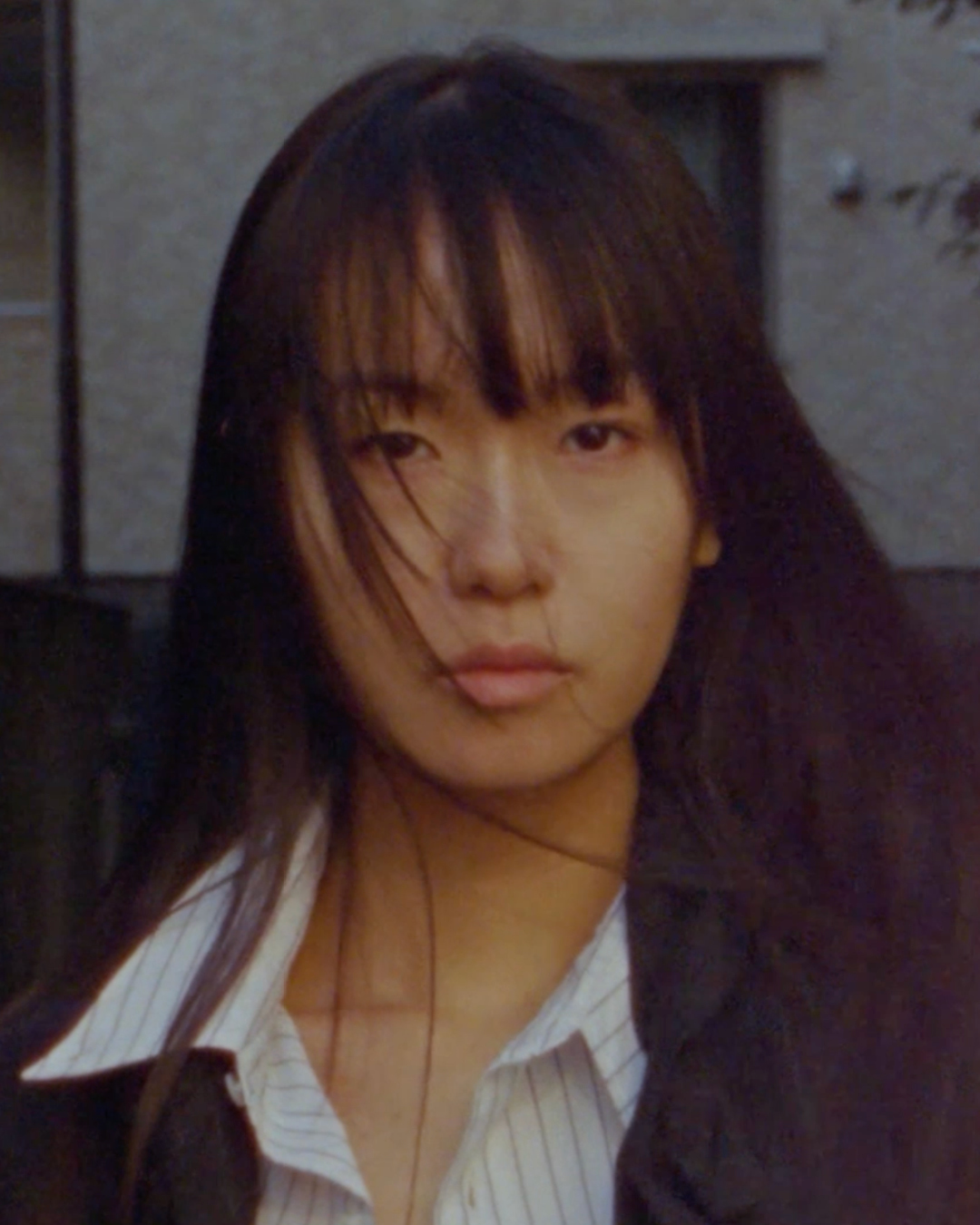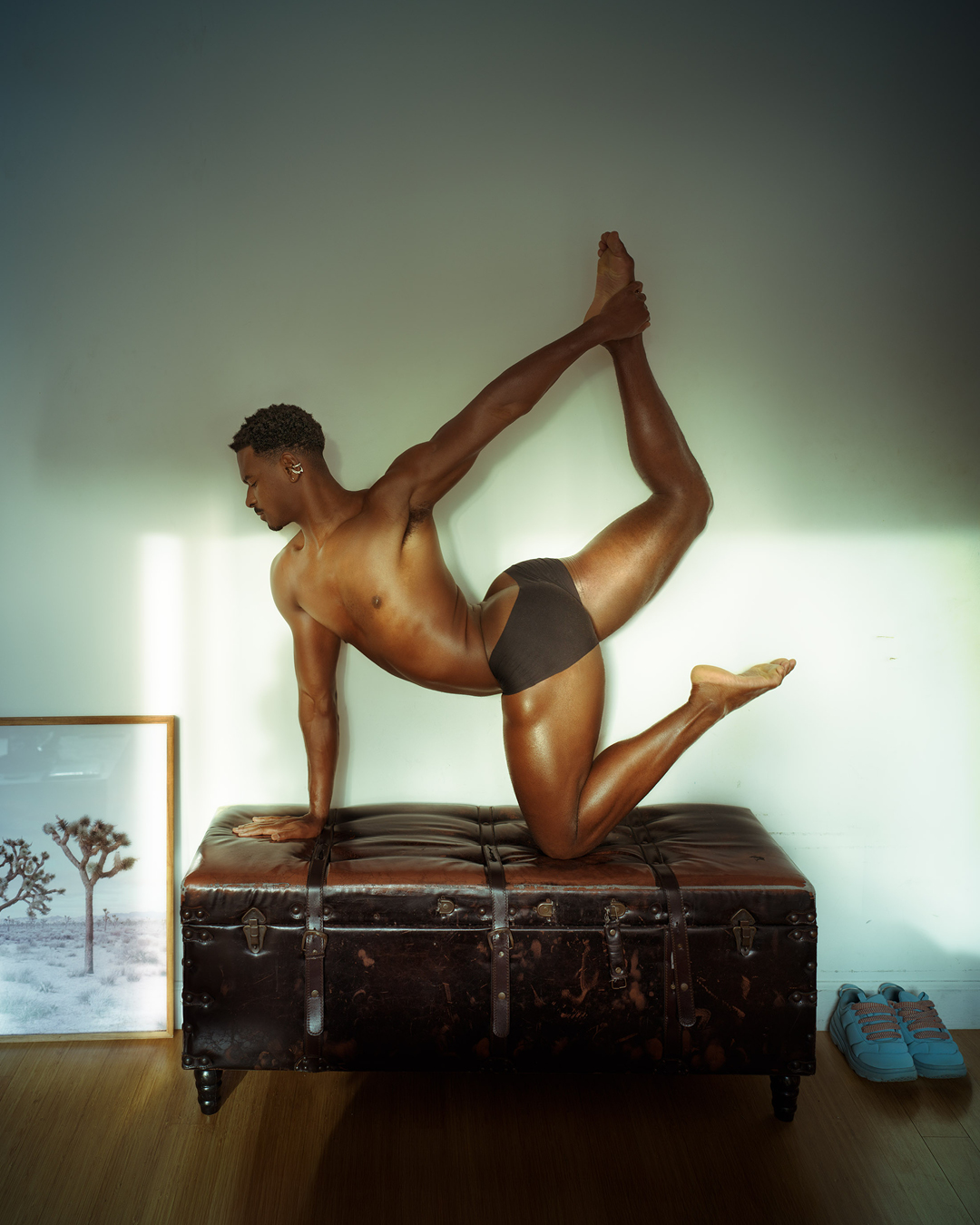WELCOME TO THE ERA OF THE SLASH
You don’t have to be just one thing anymore. Roxie Nafousi explains why self-complexity — not simplicity — is the new measure of power.
We grew up in a world that loved to label us. Especially in the ‘90s, when identity was something you could sum up in a single word or phrase. You were Sporty or Posh. You were the class clown or the academic achiever. A Rachel, a Joey, a Monica — each character from Friends neatly packaged with a fixed personality and an unchanging story arc. And somewhere along the way, we absorbed those rules. We learned that who you were was something you chose once, and then performed forever.
As we moved further into adulthood, those ideas got upgraded, dressed up in the language of professionalism. We were told that clarity equals credibility. That consistency earns respect. That if you wanted to be taken seriously, you had to stay in your lane. Be one thing, do it well, and never stray too far from the version of yourself the world decided made sense.
But that version of the world is an old model. We’ve entered what I call the era of the slash. Where people are proudly refusing to be reduced to a single title or identity. The designer slash DJ. The teacher slash artist. The parent slash founder. The world has finally caught up to a truth: We are many things, and it’s the interplay of those many things that makes us so wonderfully unique, interesting and powerful.
And yet, even while culture has finally begun to celebrate the multi-faceted, many of us are still quietly terrified of showing our own range. The inner critic whispers: What will people think? If I start a podcast will people think I’m having a mid-life crisis? If I change careers will people call me flaky or a failure?
We hold ourselves back not because we lack talent or ambition, but because we don’t want to be judged for changing. We’ve been taught that reinvention looks like confusion when actually, it’s a mark of evolution.
Confidence comes from honoring our complexity, our contradictions, our nuances, and letting each part take up space.
Many of us now understand the importance of personal development for our overall wellbeing and life satisfaction, but how can we expect to cultivate confidence if we’re still shrinking, editing or hiding parts of ourselves? Confidence comes from honoring our complexity, our contradictions, our nuances, and letting each part take up space.
Think about the people we admire most. The ones whose names we reference when we talk about authenticity, artistry, power. They’re the ones who shape shifted. David Bowie, Madonna, Lady Gaga — artists who never apologized for revealing a new facet of themselves. Reinvention wasn’t a rebrand, it was a reclamation.
In psychology, there’s a term for this: self-complexity. The idea that people who recognize and express the different sides of themselves are more emotionally resilient and confident. When one part of your identity feels challenged, the others are there to hold you steady. Your creativity can carry you when work feels flat. Your intellect can anchor you when your self-image feels shaken. The more facets you allow yourself to have, the more rooted you become.
When I first entered the self-development space, I was scared that my love of beauty and fashion would make people take me less seriously. I thought that credibility required being neatly contained within one type of expression, spiritual but not sensual, grounded but not glamorous. But the more I tried to be just one thing, the less real I felt.
Eventually, I realized that what makes us magnetic isn’t uniformity. It’s authenticity. I learned that I could talk about healing and self-worth one day and fully embrace my love of sensuality the next; one did not take away from the other. As soon as I started to give myself permission to express everything that made me who I am, I felt not only freer, but more grounded and magnetic than I ever have before.

Image of the author. Courtesy of ROXIE NAFOUSI

Image of the author. Photography: JERMAIN BINNS
When you stop silencing parts of who you are, something shifts. You feel safer in your own skin and your energy lifts. Psychologists actually found that living in alignment with your authentic self, not the streamlined version you think the world wants, is directly linked to higher self-esteem and a calmer nervous system.
This journey is what inspired me to develop ALIA, a luxury fragrance house designed to honor the multi-faceted modern woman. I wanted to create a self-care ritual that could be used as a tool for transformation. With our debut launch, The Alter Ego Collection, I created three distinct scents: Main Character, Powerhouse, and Scene Stealer — each one embodying a different mood, identity, or inner energy. I wanted women to wake up and choose: Who do I want to be today? How do I want to walk into the world? What energy am I ready to step into? Your alter ego is not a mask. It is a doorway, a return to the parts of you you may have forgotten, or been told to dim.
As Jim Carrey once said, “Dare to be seen in all your glory.”

Image of the author. Photography: JERMAIN BINNS

Image of the author. Photography: FAYSAL HASSAN
Roxie Nafousi is a global best-selling author, motivational speaker, and leading voice in the self-development space. Known for her transformational 7-step manifesting method and her books MANIFEST and CONFIDENCE, which have sold over 1 million copies in over 125 countries across the globe. She is also the founder of ALIA, a luxury fragrance house celebrating the modern multi-faceted woman. As an EE72 lifestyle contributor, Roxie writes monthly on identity, confidence, and personal growth.
— Read Roxie’s previous column, “How to Detox Your Friend Group”
